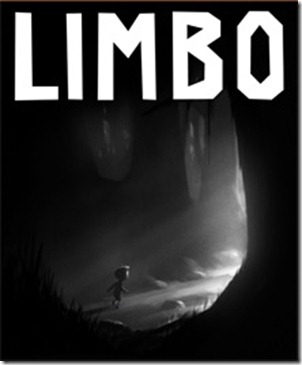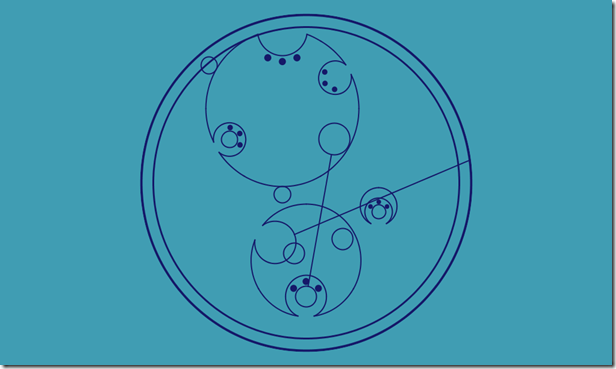This weekend I finally had time to finish “Limbo”:

In case I’ve never mentioned Limbo, it’s an indie game, with a very interesting black and white aesthetic, which tells the story of a dead boy that’s wondering through limbo looking for his dead sister.
From a game mechanics point of view, the game is utterly brilliant, a lot of fun to play!
But the game also made me wonder about if we (as a community) need sad stories… A lot of the indie scene is fascinated with stories with sad undertones, “bad” endings, etc; the reason why is probably rooted into an act of rebellion against the establishment (that basically only has happy endings, where the player wins at the end), or just because that’s usually what people want to express (look at the music scene in the last 20 years!), since pain and sadness hits us human beings harder than happiness.
But my point is not so much in why indies use this as a theme, but more about the necessity of such things… Before I start, I just want to say that I don’t have a clear answer about this… when I wrote some stories or songs, I also tend to go towards the darkest places of the human psyche, because they appeal more to me… So, this is not to be taken as a criticism, but just to open a new avenue of discussion and thought…
Sadness is an integral part of life… Everyone has felt sadness in their lives, and it’s well accepted as part of the growth and learning process. But my question is, do we actually need it in our games?
I was thinking that while playing Limbo… The setting is a beautiful yet dark place, and the story is as dark as they come (although that is debatable, since you don’t have as much exposition as most games, so your interpretation of what you see can be different of mine, very subjective), and yet, I had fun playing the game… Isn’t the sadness balanced out by the fun? Maybe that’s the design, but there’s a part of me that feels “bad” for having fun playing a game about a dead child…
Of course, we can add to the game a kind of moral, which is “sometimes, no matter what you do, the outcome is still terrible”… But is that a lesson we need from games? Isn’t that something that life teaches us, even if we don’t want to?
We can defend this type of expression by stating “games are art, and art should mimic life”, but isn’t that concept more applicable to non-interactive mediums? When you look at a painting of a sad situation, you’re looking as an observer, you’re asked by the artist to contemplate the sadness and to be transformed by it, transformed by something that is happening to someone else… In an interactive medium, you’re asked to be part of the sadness, to experience it… One can argue that it is just an extension of the same principle, but more effective, more “brutal” in its expression. But the problem with this approach is that you’re asked in a game to have fun with your own sadness… might be a good lesson, but it may be a painful one?
And, if all games go all sad and broody, won’t we at certain point lose the empathy with the sadness, like we are desensitized by violence?
Note that there is a difference between a sad story and a sad ending… Take the example of “Mass Effect 3”… The ending is sad (culminating with the death of the main character), but the story is not sad; much to the contrary, “Mass Effect 3” is a story about overcoming impossible odds, by sticking to your principles, etc… And victory is ultimately achieved, with the sacrifice of Shepard. So we can even make the argument that it is a good ending, not a sad one, since the sacrifice had a purpose (I’m ignoring the fact that it was terribly executed because that’s beyond the point).
I have nothing against sad endings (and not even against sad stories, just like thinking about it), but a pertinent question arises: do we, as a society in general, and as people that appreciate games as an artistic endeavor in particular, need sad stories? Do they serve an actual purpose, like old fairy tales served as cautionary tales, or is it just an exercise in difference?
This won’t make me popular in the indie community, but it seems to me that indie developers and indie gamers are kind of obsessed with sad stories… look at Braid, Limbo, Passing, Dear Esther…
Of course, this is just a part of the expression… Look at Super Meat Boy, Frayed Knights and many others to see the exact opposite of that; but I fear that the sad games are more popular than the happy games, which makes me think that maybe there’s a market there, there’s people that actually want to play sad stories, to feel alongside the characters in the game, maybe to experience a type of melancholy they normally have absence from their lives, or maybe to feel a melancholy that makes them feel like someone, somewhere, understands them.
Since I’m an escapist by nature, I play games to have fun, to be entertained, so I guess I take those sad stories as an infringement on my happiness (although I can’t stress this enough: I had a lot of fun playing Limbo, I just felt “guilty” at the end!).
I feel this will be a discussion for the ages, with people on both sides of the barricade, but to be honest, I think it’s one of the best discussions about games, one that elevates games from simple “toys” to actual art.

